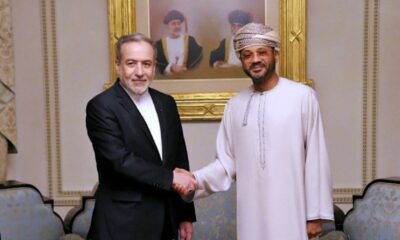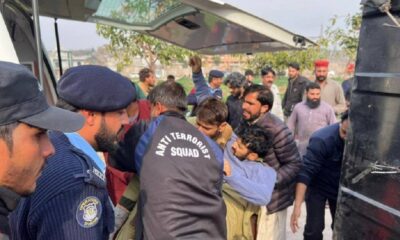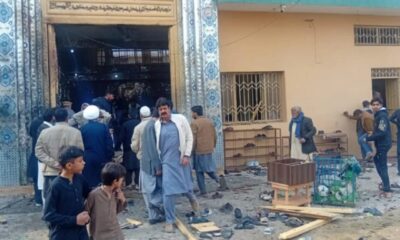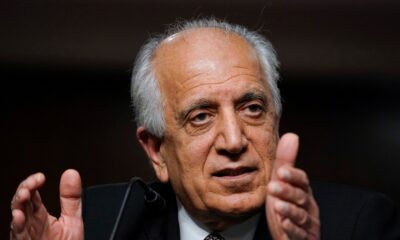Latest News
Taliban make big changes ahead of expected talks with Kabul
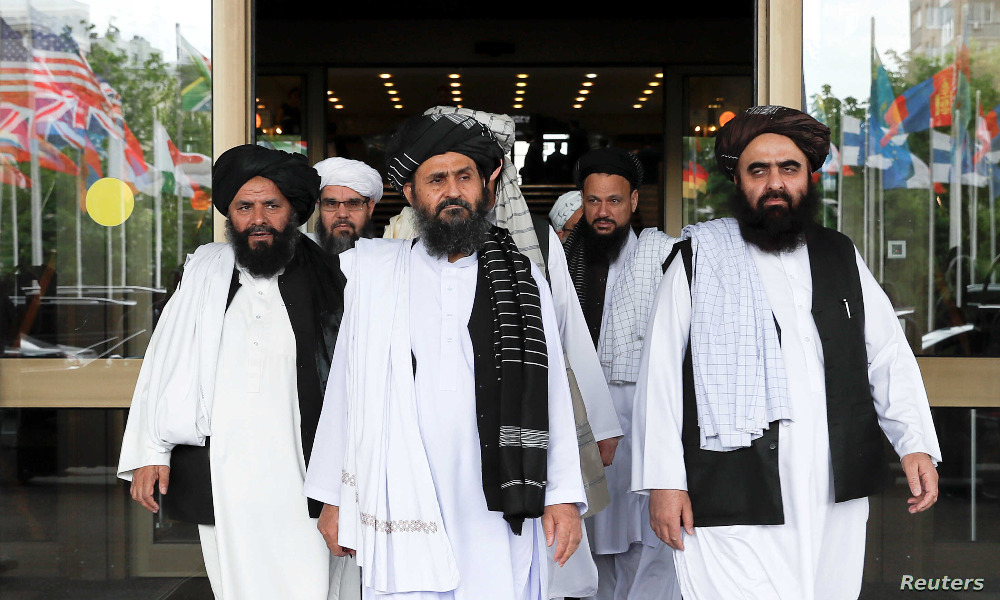
The Taliban have put the son of the movement’s feared founder in charge of their military wing and added several powerful figures to their negotiating team, Taliban officials told Associated Press.
The shake-up, one of the most significant in years, comes ahead of expected talks with Kabul aimed at ending decades of war in Afghanistan.
As head of a newly united military wing, 30-year-old Mullah Mohammad Yaqoob brings his father’s fiercely uncompromising reputation to the battlefield.
Equally significant is the addition of four members of the insurgent group’s leadership council to the 20-member negotiating team, Taliban officials told Associated Press.
The shuffle, overseen by Taliban leader Mullah Hibatullah Akhunzada, is meant to tighten his control over the movement’s military and political arms, the officials said on condition of anonymity because they were not authorized to discuss the inner workings of the Taliban.
According to AP, analysts say the shake-up could be good news for negotiations with the Afghan political leadership, and a sign of how seriously the Taliban are taking this second — and perhaps most critical — step in a deal Washington signed with the insurgents in February.
“I’d say it appears to be a positive development because the Taliban are creating a delegation that seems more senior and more broad-based than they’ve used to date, or than might be strictly necessary for the opening stages of talks,” said Andrew Wilder, vice president of the Asia Program at the Washington-based US Institute of Peace.
“If you want to see the glass as half full, this strengthened Taliban delegation could be interpreted as a sign that the group is planning to engage in serious discussions,” he said.
When the US signed the deal with the Taliban on February 29, after more than a year and a half of negotiations, it was touted as Afghanistan’s best chance at peace in four decades of war. It was also seen as a road map for the withdrawal of US troops from Afghanistan, ending America’s longest war.
On Monday, four-and-a-half months since the signing, chief US negotiator and peace envoy Zalmay Khalilzad tweeted that “a key milestone in the implementation of the US-Taliban agreement” had been reached as American troop numbers dropped to 8,600 from about 12,000 and five bases were closed in Afghanistan.
Even as Khalilzad chastised increased insurgent attacks on Afghan security forces, he said the Taliban had been true to their word not to attack US and NATO troops.
“No American has lost his/her life in Afghanistan to Taliban violence. Regional relations have improved,” he tweeted.
The Taliban have stepped up their military activity against Afghan government forces since Yaqoob’s appointment in May, a sign the militants under his leadership may see battlefield wins as upping their leverage at the negotiating table.
“I can see a lot of reasons for the Taliban to be pushing the envelope — perhaps as a negotiation tactic, but equally likely as a means to test US limits,” said Daniel Markey, a senior research professor at Johns Hopkins University’s School of Advanced International Studies.
“So far, the Trump administration looks like it is heading for the exit, no matter what. Why not ratchet up the violence to see what greater victories can be won?”
Surprisingly, the shuffle also sidelined senior Taliban leader Amir Khan Muttaqi, removing him from the negotiating committee.
Seen as close to neighboring Pakistan, his removal could limit Pakistan’s influence and buttress their position with Kabul, which is deeply suspicious of Islamabad.
Already a deputy head of the movement, the sudden appointment of the son of Mullah Mohammed Omar as the Taliban military chief reportedly ruffled feathers among members of the leadership council, who had not been consulted.
Yaqoob, however, met with the council and won over the dissenters, said the Taliban officials.
“Yaqoob’s appointment appears to be, at least in part, an effort by Mullah Akhundzada to shore up oversight of battlefield operations at a key moment … as the insurgents ramp up violence to strengthen their negotiating position in preparation for potential peace talks with the Afghan government,” said Michael Kugelman, deputy director of the Asia Program at the Washington-based Wilson Center.
In recent weeks, hopes have been raised of a July start to negotiations but the Taliban and the Kabul government have become bogged down in the final release of prisoners, a prerequisite for the start of negotiations.
Taliban spokesman Zabihullah Mujahid told the AP on Friday that the Taliban reject government efforts to substitute prisoners from the originally negotiated list for the exchange.
Countries have been lining up to host the talks, with Germany being the latest to put in an offer and Turkey, Iran, Indonesia, Japan and Norway reportedly among the nation’s volunteering.
However, the Taliban and Afghan government officials say the first round is likely to be held in Doha, the capital of Qatar, where the Taliban maintain a political office.
The newly strengthened negotiating team includes Abdul Hakeem, the Taliban’s chief justice and confidant of Akhunzada, as well as Maulvi Saqib, who was chief justice during the Taliban rule.
Under the US-Taliban deal, the Taliban — who during their rule of Afghanistan hosted al-Qaeda chief Osama bin Laden as he planned the 9/11 attacks — have pledged to no longer host any terror groups.
They also guarantee that Afghanistan will not be used as a launching arena for future attacks against America.
In a tweet this week, Khalilzad said “more progress is needed on counter-terrorism,” without elaborating.
This week, US Secretary of State Mike Pompeo also spoke about the controversy surrounding the White House over reports of Russian money being paid to Afghan militias — reportedly with links to the Taliban — to kill US troops.
“There’s a lot of Russian footprints; there are Russian weapon systems there. We have made clear to our Russian counterparts that we ought to work together to get a more sovereign, more independent, peaceful Afghanistan,” he said.
Latest News
Islamic Emirate strongly condemns mosque bombing in Islamabad
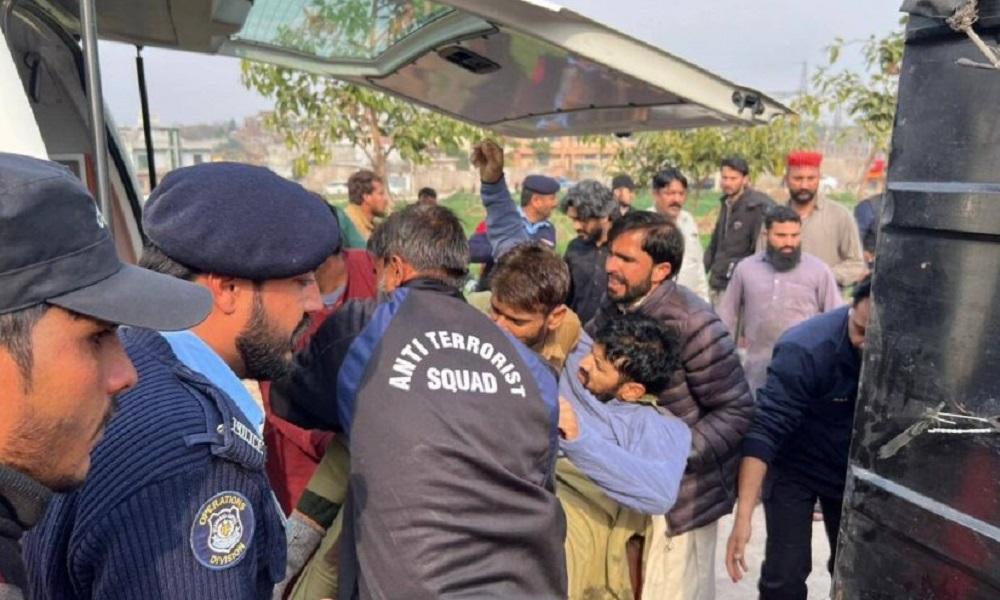
The Ministry of Foreign Affairs of the Islamic Emirate of Afghanistan has strongly condemned Friday’s suicide bombing at a Shi’ite mosque in Islamabad, the capital of Pakistan, which left 31 people dead and 179 others wounded.
Abdul Qahar Balkhi, spokesperson for the Ministry of Foreign Affairs, said in a statement that the Islamic Emirate considers such attacks—which violate the sanctity of religious rites and mosques and target worshippers and civilians—to be contrary to Islamic and human values.
The Islamic Emirate also expressed sympathy with the families of the victims and wished a speedy recovery to the wounded.
Latest News
Suicide bomber kills 31 in Shi’ite mosque in Pakistan’s capital
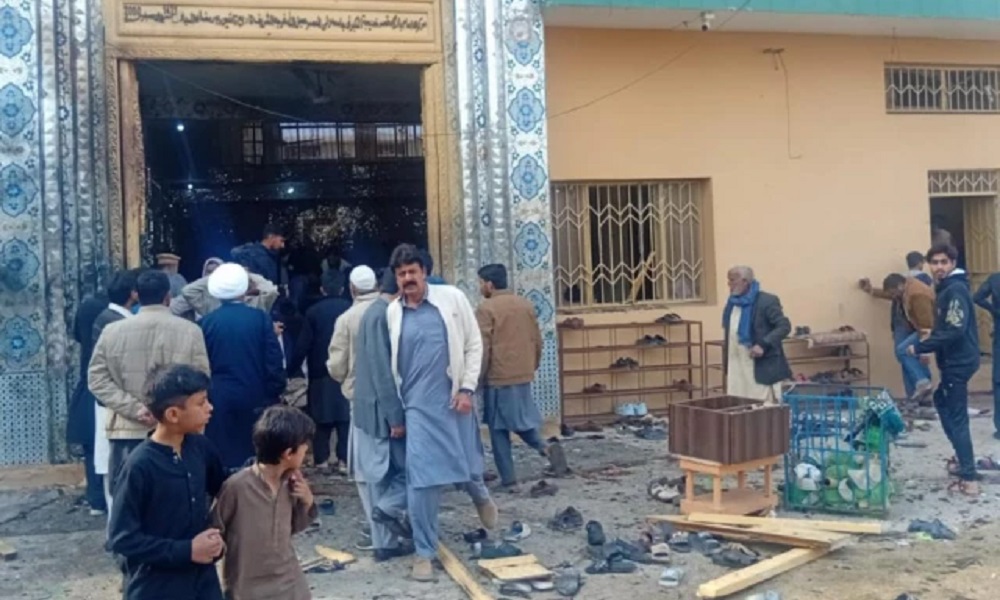
A suicide bomber killed at least 31 people and wounded nearly 170 others during Friday prayers at a Shi’ite Muslim mosque in Pakistan’s capital, Islamabad, Reuters reported, citing police and government officials.
Images from the site showed bloodied bodies lying on the carpeted mosque floor surrounded by shards of glass, debris and panicked worshippers.
Dozens more wounded were lying in the gardens of the Khadija Tul Kubra Imambargah, in a semi-urban area on the outskirts of Islamabad, as people called for help.
Bombings are rare in the heavily guarded capital, although Pakistan has been hit by a rising wave of militancy in the past few years.
“The death toll in the blast has risen. A total of 31 people have lost their lives. The number of wounded brought to hospitals has risen to 169,” Deputy Commissioner Islamabad Irfan Memon said in a statement.
Two police officials said the attacker was stopped at the gate of the mosque before detonating the bomb. They asked not to be identified as they were not authorized to speak to the media.
Latest News
Central Asian leaders are urging Pakistan to improve Afghanistan policies, says Khalilzad
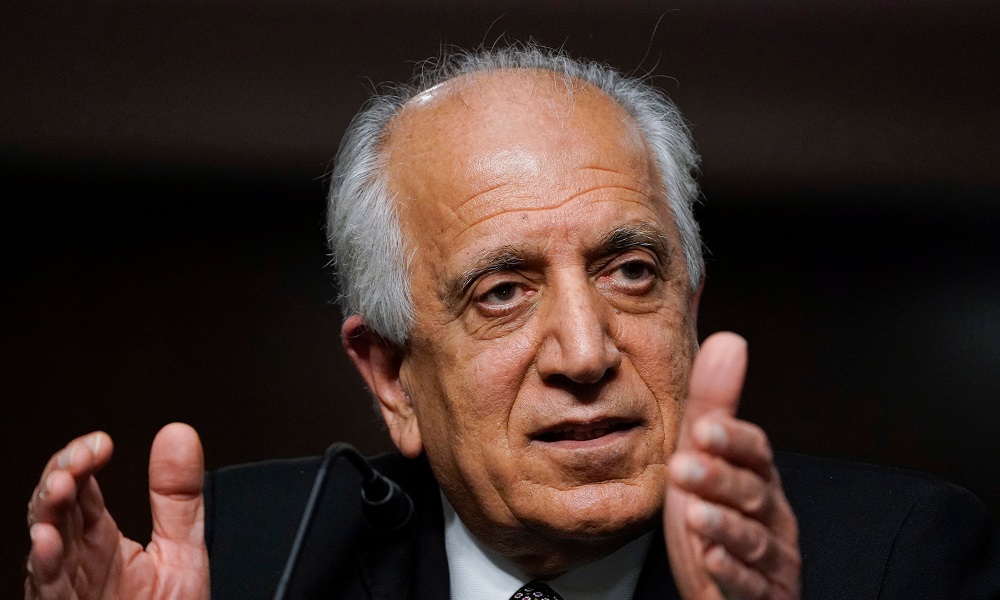
Former U.S. envoy Zalmay Khalilzad has highlighted the strategic importance of Pakistan’s relationship with Afghanistan, noting that visiting Central Asian leaders are likely encouraging Islamabad to strengthen its policies toward Kabul.
In a post on X, Khalilzad emphasized that Central Asian nations have a strategic interest in access to Pakistan and beyond, including the sea, to support their trade and connectivity projects. He pointed out that these countries are particularly focused on developing railways, pipelines, telecommunications, and electricity networks linking Central Asia and Pakistan—a move he said would also serve Pakistan’s interests.
“Of course, Afghanistan’s role is vital to the goal of regional connectivity and development,” Khalilzad said. “Stability in Afghanistan and good Pakistan/Afghanistan relations are the absolute prerequisite.”
He suggested that the Central Asian leaders visiting Islamabad are urging improvements in Pakistan’s Afghanistan policies and expressed hope that Pakistani authorities would listen to these recommendations.
Pakistani officials have repeatedly claimed that Afghanistan-based militants have carried out recent attacks in Pakistan. Kabul denied the charge, saying it could not be held responsible for security inside Pakistan.
Trade between the two countries remains suspended following a deadly clash near the Durand Line in October.
-

 Sport5 days ago
Sport5 days agoAFC Futsal Asian Cup 2026: Final eight confirmed
-

 Sport4 days ago
Sport4 days agoJapan trumps Afghanistan 6-0 in AFC Futsal Asian Cup quarter-final
-

 Sport5 days ago
Sport5 days agoAfghanistan in new kit for T20 World Cup warm-up against Scotland
-

 Sport3 days ago
Sport3 days agoHosts and heavyweights advance as AFC Futsal Asian Cup reaches semifinals
-

 International Sports5 days ago
International Sports5 days agoPakistan to boycott T20 World Cup group match against India
-

 Sport5 days ago
Sport5 days agoAfghanistan crush Scotland in ICC T20 World Cup warm-up
-

 Latest News2 days ago
Latest News2 days agoTerrorist threat in Afghanistan must be taken seriously, China tells UNSC
-

 Latest News3 days ago
Latest News3 days agoUzbekistan, Pakistan advance Trans-Afghan railway project


